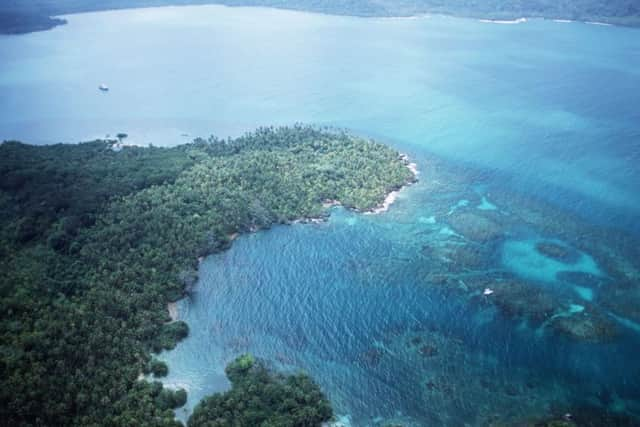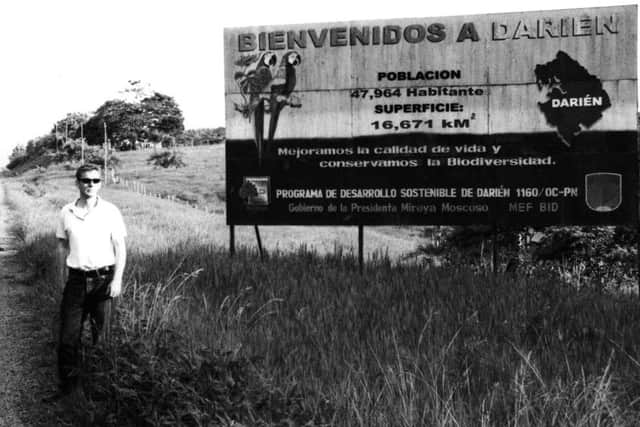Remembering the Scots who bought into the Darien dream
Crowds gathered as a large notice was hammered up at the entrance to Mylne’s Square off the Royal Mile and, as the freezing early spring in the capital bit hard, a hush fell as those assembled read the offer of a new life in a distant tropical land.
Word had buzzed around the city’s coffee shops and taverns for weeks about plans to create a new Scottish colony at Darien in modern-day Panama. At Mrs Purdie’s coffee house by Mercat Cross, popular with 17th Century influencers, people rushed to subscribe to the vision that would create a lucrative trading colony, that brought together goods from the east and west, on the Caribbean side of the isthmus of Panama.


Advertisement
Hide AdProspectuses were drawn up by the newly formed Company of Scotland using selective detail from a rather flamboyant account that presented Darien as a jungle paradise.
Aristocrats handed over thousands of pounds as details of the scheme emerged. Merchants grew giddy on the prospect of riches and ordinary working people, from Robert Douglas, a soap boiler from Leith to Thomas Gemmill, a hammerman from the Gorbals, handed over a significant sums to buy into Scotland’s new colonial era.
With around £400,000 called for – around £95 million in today’s money and almost half of the nation’s available capital at the time – ships were procured from the continent for the voyage.


Goods to both sell and create the new colony, from periwigs and tartan to nails and axes, were stowed on the ships with plenty of alcohol also among the cargo bound for New Caledonia.
All that was now needed were the new colonists and in March 1698, company secretary Roderick McKenzie put up the notice at Mylne’s Square. It was not long until 1,200 men bought into the hype. “People flocked to Mylne’s Square,” said John McKendrick, author of Darien, a Journey in Search of Empire.
“For those who endured the deprivations of Scotland in the 1690s, the offer of 50 acres of plantable land and 50-feet square of land in the chief city or town was a very inviting offer. Chief amongst those who sought office or passage were the soldiers and officers made redundant by the Treaty of Ryswick, which had temporarily ended King William’s war with Louis XIV. After fighting in Flanders thousands of Scots were sent back to their impoverished homeland where, understandably, they clamoured to obtain positions with the Company.
Advertisement
Hide Ad“Many received commissions, but those who were able to have first refusal were the gentleman volunteers, the sons of Scottish nobility and wealthy merchants who sought to either expand or restore familial pride and wealth by reaping the benefits or colonial opportunities.”
Diaries of passengers reveal that John Stewart, a barber, died of a fever on the journey with the decks washed with vinegar to stem infection. A surgeon’s mate, Walter Johnson, died from an overdose of laudanum. A minister, Robert James, perished on October 23 1698.
Advertisement
Hide AdWalter Herries, a surgeon, wrote that “unwholesome water taken on at Crab Island” led to men falling down and dying like “rotten sheep”. Hannah Paterson, the wife of William, the original architect of the scheme, died 12 days after arriving in this new “paradise”.
The original colonists abandoned Darien six months after arriving, leaving 400 graves behind. As survivors recovered from the ordeal, another ship set sail from Leith with 1,000 passengers unaware of the devastation ahead. By the end of the colonial experiment, more than 2,000 Scots had died. The very venture that was to create vast independent wealth helped fuel support for the 1707 Union and the creation of Great Britain. Scotland’s attempt at building a rich, tropical utopia came at the most painful of prices for many.
Darien: Journey in Search of Empire by John McKendrick, published by Birlinn, is available now.
